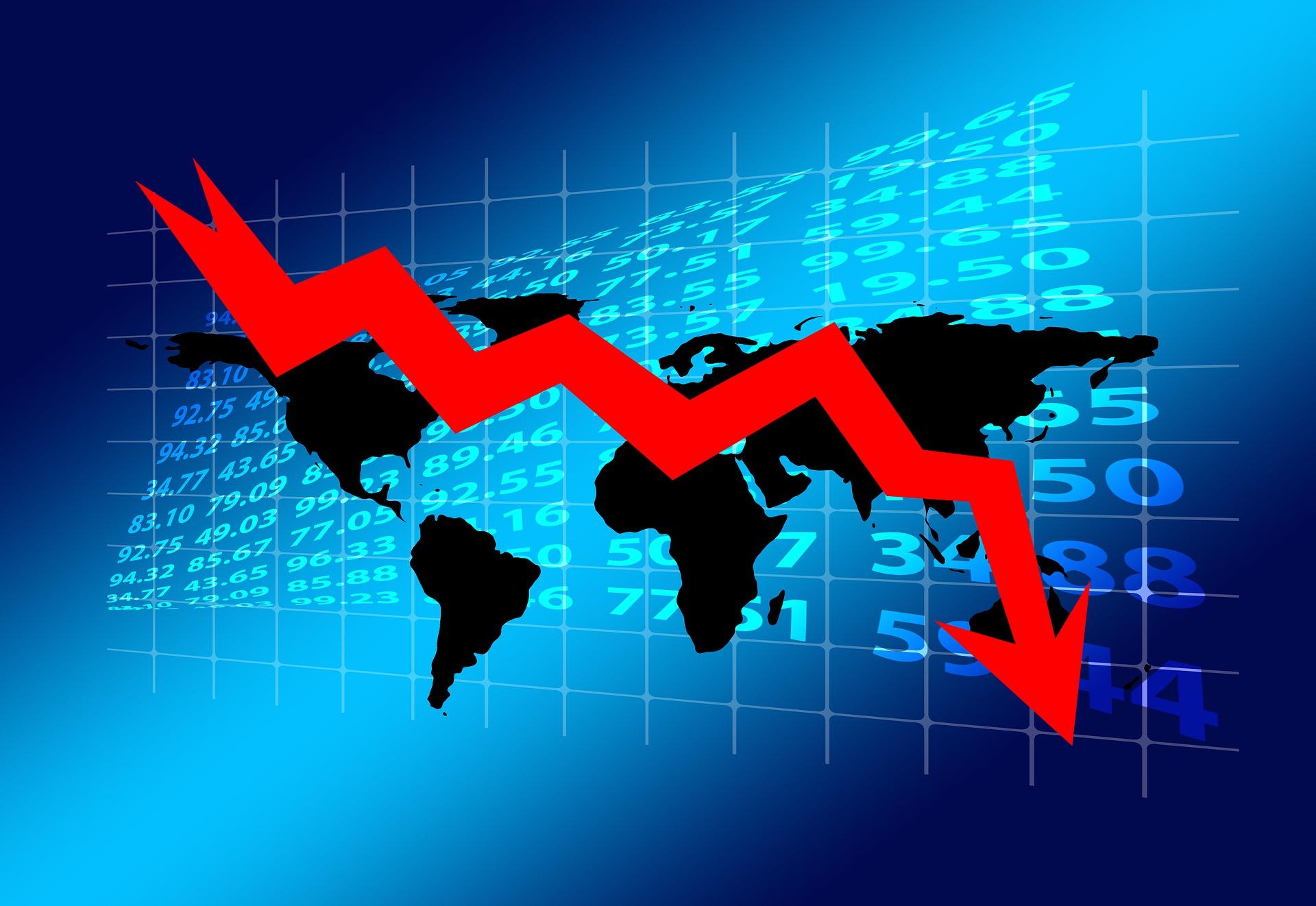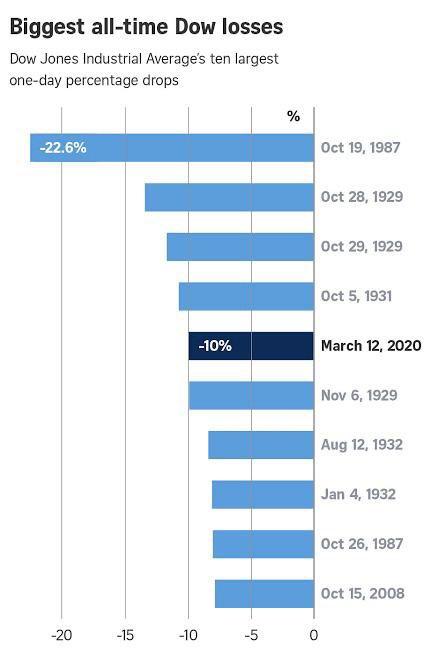
The Dow Jones Industrial Average (DJIA), a key indicator of U.S. stock market performance, has seen numerous significant one-day drops throughout its history. These sharp declines are often triggered by broader economic crises, political turmoil, or unprecedented global events.

The most severe single-day percentage drop occurred on October 19, 1987, now infamously known as Black Monday, when the Dow plummeted by a staggering 22.6%. This drop remains the largest in history and shook global financial systems, despite no clear economic cause behind the crash.
Close behind are two days from the 1929 stock market crash — October 28 and 29, with losses of around -13% and -12%, respectively. These dates mark the beginning of the Great Depression, a defining era of economic hardship worldwide.
Interestingly, the chart also includes a more recent event: the March 12, 2020 crash during the onset of the COVID-19 pandemic. The Dow fell by 10% that day, marking its fifth-worst drop ever. This steep fall was driven by widespread fear and uncertainty about the global economy shutting down.
Other notable entries on the list are from the early 1930s during the Great Depression, the 2008 financial crisis, and even another plunge in October 1987.
These ten historical crashes serve as reminders of how quickly market sentiment can shift and how critical it is for investors to stay informed and diversified.
Key Takeaways:
- Volatility is part of market history.
- Major crashes are often followed by strong recoveries.
- Understanding historical context helps investors make informed decisions.
Disclaimer:
The information provided in this article is for educational and informational purposes only and should not be construed as financial or investment advice. Past performance is not indicative of future results. Always consult with a qualified financial advisor before making any investment decisions.




